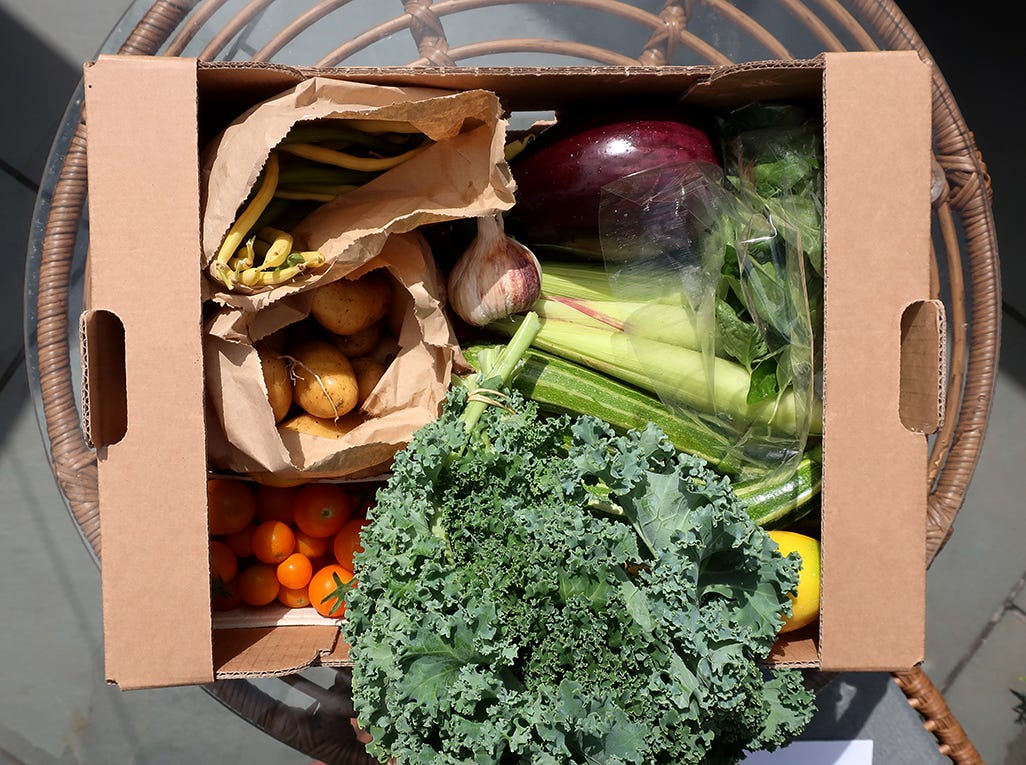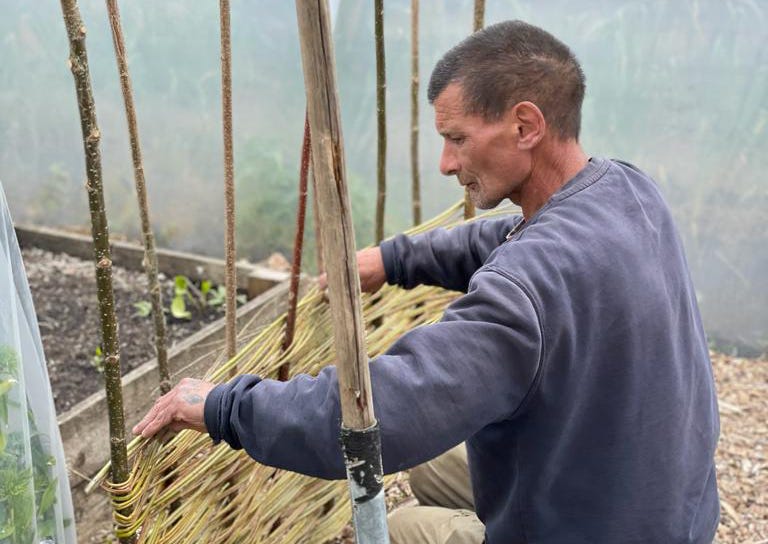How local food can help beat rural homelessness [WFJ #29]
Social and therapeutic horticulture is benefitting rough sleepers and local eaters
It may have taken the worst pandemic in a hundred years, but recently we’ve come to realise being out and about in nature is, actually, quite good for us.
Downtime and the need for fresh air played their part – over the course of COVID, more than 40% of Brits noticed that nature, wildlife, and visiting local green and natural spaces were of higher importance to their wellbeing than before national restrictions came into place.
It’s influenced the thinking of medical professionals too, with more and more health institutions around the world prescribing patients not with drugs, but with time spent in nature. ‘Green social prescribing’, as it’s been called since the ‘90s, can help treat physical ailments like high blood pressure, diabetes, and lung disease. But also mental health challenges such as depression and low self esteem.
This is where the likes of Root Connections – a social enterprise at Manor Farm in Stratton-on-the-Fosse – comes in, with its ambition of using social and theraputic horticulture to, in its own words, ‘end rural homelessness’ in Mendip.
Set up in 2018 as a Community Interest Company to support residents living at the Dairy House hostel on the farm, Root Connections uses the act of growing food in community as part of their overall care. Hostel residents often arrive with complex needs, which can relate to experiencing rough sleeping, long-term unemployment, addiction, mental health issues, crime, and abuse.
In collaboration with the hostel and the farm, time spent at Root Connections helps them to “enjoy fresh air, social reintegration, and be a part of a community market garden,” Sue Cross-Bourton tells The WFJ. Sue is the manager at Root Connections, taking care of day-to-day operations, planning, funding, trading income, and “everything else apart from growing” at the project.
“Dairy House residents are with us for 12 weeks on a rolling programme, depending on their circumstances – and up to 60 volunteers who come along on Tuesdays and Fridays. The volunteers include ex-Dairy House residents who've moved on but want to stay connected.”
As well as things like art, pottery, and field trips, hostel residents take part in the production and distribution of fruit, flowers, vegetables, jams, and honey, and have access to accredited horticulture qualifications to prepare for future employment. Though fruit and veg on site does not have Soil Association certification, it is grown to organic principles, such as no-dig, and without the use of agrochemicals like herbicides and pesticides. “We buy in organic compost and organic seed from UK suppliers, so we have the same expenditure as an organic grower,” Sue says.
Vegetables grown at Root Connections originally supplied the Somerset Local Food platform and local collection hubs, but since early 2020, the focus has moved more towards farmers markets, a pop-up shop every Friday morning at the farm, and direct delivery serving local households in a 12-mile radius, including Radstock, Wells, Evercreech, Bath, Chilcompton, Shepton, Mells, Midsomer Norton, Frome, Bruton, and so on.

“Veg boxes are a way of bringing in essential income to support our work,” Sue says. “The focus really is on our aim to end rural homelessness, which is going to get worse with the cost of living crisis and lack of affordable housing.”
With 1,600 households reporting a housing issue to Mendip District Council a year, and a little less than half that number either homeless or at the risk of it, organisations like Root Connections find themselves to be a much-needed resource. Construction is currently underway at Manor Farm for a community hub which will, among other things, provide workshops, events, and horticulture courses. This puts Root Connections in a better position to deliver on their aims, but even so, Sue says, “we need all the financial help we can get.”
It might be strange to say, but Root Connections doesn’t see itself as a producer per se. Mendip residents can help people get their lives back on track by buying a box of the project’s locally-grown veg or flowers, but it is community and the social and therapeutic method – not its product – that keeps Root Connections ticking. “The veg and the flowers are almost a byproduct of the work we do,” says Sue. “The Dairy House and the residents come first, and the veg boxes are a result of that.”
Whatever the case, is there a better local example of how green social prescribing can help Mendip’s rough sleepers, and feed locals on nature-friendly produce all in the same swoop?1
Further reading:
Root Connection’s Impact Report 2021
What does buying local food do for the environment?
Genuinely, is there? Answers in the comments.





What a great idea, so inspiring . thank you